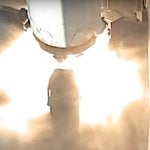
As the Tokyo Motor Show approaches, Toyota announces plans to highlight an array of experimental technologies geared toward detecting the needs of drivers. The technology uses artificial intelligence to monitor driving habits, facial expressions, and social media use. This information will be used to anticipate a driver’s needs and desires. This technology will be unveiled in Toyota’s new Concept-i series.
Although concerns have been expressed over the technology, which is seen by some as an invasion of privacy, prototypes utilizing such technology will be unveiled at the show later this month. Facial recognition technology will analyze images of drivers’ faces, as well as their driving habits and preferences, and use that information to determine the physical and emotional state of the driver. The technology also detects behaviour, eye movement, body language, driving patterns, schedules, and more.
If a driver yawns or otherwise signals that he or she is tired, the vehicle’s seat may vibrate in order to alert the driver. An anxious driver may notice a calming scent sprayed in their direction. The aim of companies like Toyota is to maintain the safety of drivers everywhere. By keeping a driver alert until they reach their destination, manufacturers hope to drastically reduce the number of accidents caused by drivers who fall asleep at the wheel.
Toyota is not alone in its efforts to improve driver-vehicle communication. Honda Motor Company is also showcasing similar concept models, such as the NeuV, which is designed to detect stress levels and learn driver preferences. The vehicle will monitor natural communication from the driver, allowing for personalized driving experiences and safer travel.
Toyota plans to begin road-testing Concept-i’s autonomous driving technology and artificial intelligence system, also known as Yui, in Japan by 2020. Toyota first introduced the Concept-i and Yui at CES early this year, promoting it as a system that is created to grow and learn from the driver, building a driver-vehicle relationship that is both “meaningful and emotional.”
The Concept-i Ride, perhaps the most fascinating vehicle in the Concept-i series, was designed as a user-friendly vehicle that is suitable for all drivers, including those who are wheelchair-bound. The vehicle offers a variety of features, including gull-wing doors, electricuniversal sliding seats, and joystick steering. The smaller vehicle size allows wheelchair users to enter and exit common parking spaces. The Concept-i Ride also includes artificial intelligence designed to enhance the driver’s experience and provide information on barrier-free facilities.
Toyota continues to develop new ways to implement technology that is as user-friendly as it is helpful.



































